Chelsea: What are the pressing issues for the Premier League club's new owners?
Last updated on .From the section Chelsea
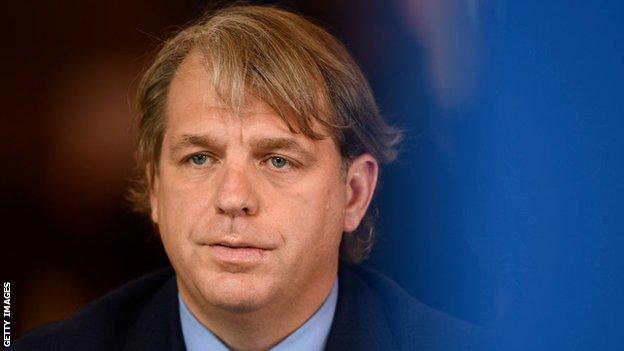
Perhaps it was fitting that Chelsea chose to announce their new American owners at a time more suited to a United States audience.
Sixty-six days after Roman Abramovich put the club up for sale, it was confirmed at 1.37am UK time on Saturday that a consortium led by LA Dodgers co-owner Todd Boehly and backed by a Californian private equity firm had agreed a deal, handled by a New York bank, worth £4.25bn.
The group is yet to pass the Premier League's owners' and directors' test or have the deal signed off by the UK government.
But the process is not expected to hit any major problems before Chelsea's operating licence - put in place to allow the club to run following the sanctioning of Russian oligarch owner Abramovich - ends on 31 May.
Then the real work starts. Aside from making Chelsea profitable and rebuilding their Stamford Bridge stadium, there are some major issues to deal with in the short term.
Once Boehly has paid the £28m monthly wage bill, he will have to decide which staff will be staying and going, and hope the team do not squander Champions League qualification.
After two months of uncertainty, the immediate future will be a huge challenge to navigate for new owners at a club where, historically, crisis never seemed far away.
Sort contracts for key players and the managers
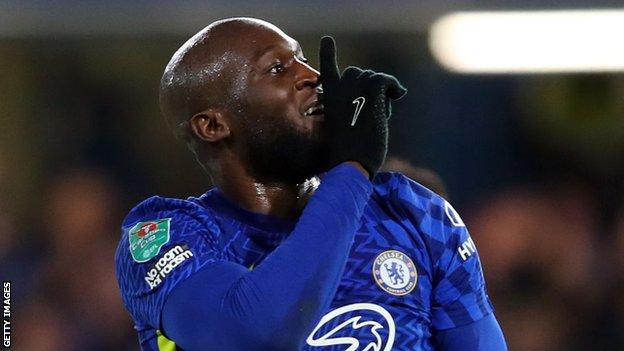
The most pressing concern at Chelsea will be a playing squad which is set to have half of its central defence walk out the door when contracts expire at the end of the season, where its record signing Romelu Lukaku sits on the bench and where academy graduates Mason Mount and Reece James are drawing interest from across Europe.
Which means that after two months where new deals could not be struck because of the sanctions imposed on the club, the new owners need people to work quickly.
Would a new director of football or recruitment specialist be able to hit the ground running for those immediate issues? Probably not. It might make more sense to keep on technical advisor Petr Cech and director Marina Granovskaia, the key contract negotiator, even if that runs the risk of Abramovich's legacy continuing.
There have been reports that the likes of Granovskaia and chairman Bruce Buck may remain at the club. Buck has been heavily involved in the sale process with American investment bank Raine Group.
Boehly and his partners will have their own ideas of who runs Chelsea in the future, including whether to fill the vacuum of a director of football, but the playing side of the men's team is in urgent need of attention.
During the sale process, men's head coach Thomas Tuchel and women's boss Emma Hayes said they wanted to stay, but Tuchel, in particular, will be wary of what the future holds as his team's season threatens to unravel, with just one win in their last five league games.
The German is seen as an asset within the club, and still has two years left on his contract. Hayes has just won the Women's Super League for a third successive season.
Sort out squad uncertainty
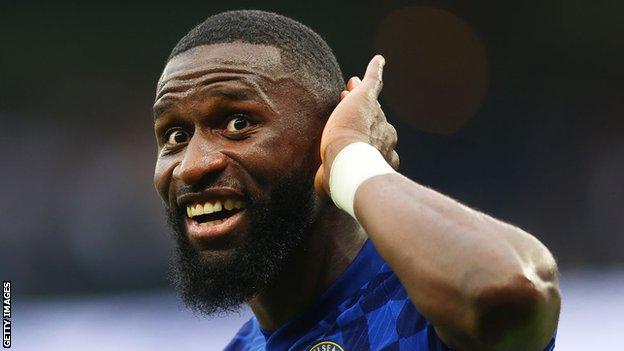
The uncertainty at Chelsea over the past two months has been in part down to the sale of the club, but it cannot account for all the issues.
Antonio Rudiger was offered a deal to become the highest paid defender in the club's history in advance of Abramovich being sanctioned but is set for Real Madrid; the sidelining of £98m signing Lukaku came soon after he gave an unapproved interview in December.
But in recent weeks results have suffered. Tuchel won the Champions League, reached the FA Cup final and the top four of the Premier League in an extraordinary first season. This term, however, the club has gone backwards.
Despite reaching the FA Cup final again, where they will face Liverpool on Saturday, their Champions League defence failed at the quarter-final stage, and qualification for next season's competition is by no means guaranteed.
All of which means there are some serious questions to be answered.
Who replaces Rudiger, and fellow centre-half Andreas Christensen, who has reportedly agreed a deal with Barcelona? Does that impact on yet another defender, Cesar Azpilicueta, who has a year left on his deal but has also been in talks with the Catalan side? Are the club willing to write-off Lukaku's hefty price tag given he does not look suited to Tuchel's playing style?
Elsewhere, American winger Christian Pulisic appears to be unhappy with his bit-part role, and the likes of midfielders Jorginho and N'Golo Kante are set to enter the last year of their respective contracts.
Clearly there is a need for stability but the club needs to act fast, in order to avoid further bumps in the road.
Boehly's consortium, which has Chelsea fans Daniel Finkelstein and Barbara Charone on board, appears to be aware of what needs addressing. Fixing it will be a different matter.
Change the transfer policy
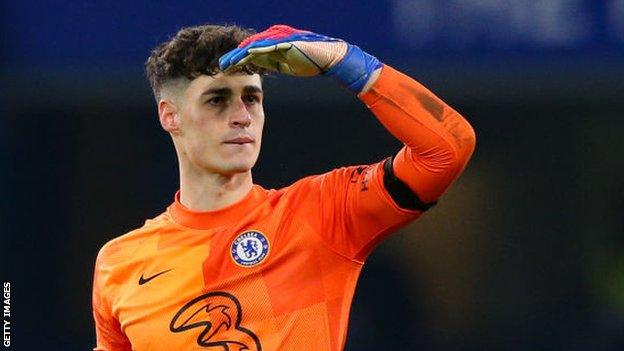
Trimming a wage bill of £28m a month might be high on the agenda for a club which will be majority-owned by a private equity firm, Clearlake Capital.
But consigning Lukaku and goalkeeper Kepa Arrizabalaga - a £71m signing in 2018 - to the bench might point to a transfer policy which needs improvement. The high turnover of managers under Abramovich's reign will also offer a chance for savings. An eye-watering example came when sacking previous boss Antonio Conte cost the club £26m, according to its accounts.
Abramovich's willingness to loan the club more than £1.5bn over his 19-year tenure is unlikely to be repeated by the new owners, given it amounted to an average loss of £900,000 a week according to football finance expert Kieran Maguire.
He says private equity firms - such as Clearlake - often are looking to make profits over a five-year period. But it is understood that Chelsea have received assurances that Boehly's consortium will commit to owning the club for at least 10 years and will not pay themselves dividends or management fees during that period.
"At Chelsea, it's highly unlikely we will see the scattergun approach to manager and player recruitment under Abramovich," says Maguire.
"Private equity firms are far more likely to take a data-driven approach and are likely to recruit cheaper players they can develop and potentially sell on at a higher price.
"So it will be a change in strategy but Liverpool are run on a similar basis and it hasn't done them any harm."
The stadium, sponsors, and profit
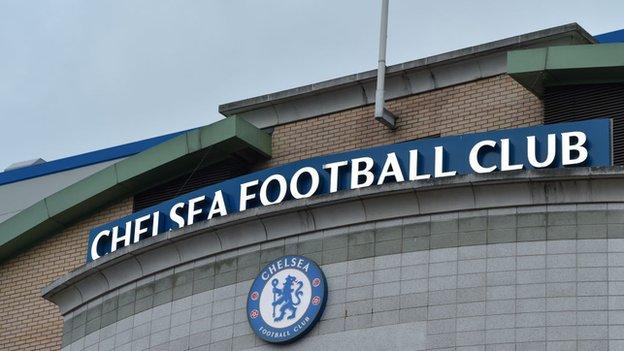
Saving money on transfers and managers will only go so far, but during the process Boehly's group have had to demonstrate how they will take Chelsea to the next level.
In the short term, negotiating new sponsorships could offer room for growth. Chelsea's shirt sponsorship with telecoms company Three is worth £40m a year and has one more season to run. Three and Hyundai both suspended their deals as a result of sanctions.
Maximising matchday incomes will also be high on the agenda, especially as the likes of Manchester United and Tottenham can be £40-50m better off than Chelsea over the course of a year based on the size of their stadiums, according to Maguire.
Stamford Bridge's 42,000-capacity stadium pulled in £67m in matchday income for its last full pre-Covid-19 season, but Arsenal and Liverpool, once they increase their capacity, will be able to draw in revenues in excess of £100m over a season.
Rebuilding the stadium would come at a huge cost, but Boehly's group has committed £1.75bn to "investments in Stamford Bridge, the academy, the women's team and Kingsmeadow and continued funding for the Chelsea Foundation".
Boehly has spoken about fan tokenisation as a way of engaging, and perhaps profiting from, supporters at different levels.
He has also hinted at attempting to turn Chelsea into a worldwide brand and boost its popularity in the United States, building on foundations of some American children growing up watching the Premier League on Saturday mornings.
The division already has eight teams which are owned or part-owned by Americans, so there is plenty of competition in that field.
How Chelsea differentiate themselves from the existing crowd, and make the gains they need to, will be as fascinating in the long term as it will be this summer.

- Our coverage of Chelsea is bigger and better than ever before - here's everything you need to know to make sure you never miss a moment
- Everything Chelsea - go straight to all the best content























Comments
Join the conversation
We've been denied since their 4-0 spanking.
2- Sell the players whos heads are not at the Bridge under Tuchel.
3- Build a bigger stadium, probably with a structure to hold concerts and no doubt one off American sports events.
4- Sign up Tuchel on a long term deal and let him run it the way he wants.
Not necessarily in that order .
Utd 13 titles
Chelsea 5
City 5
Arsenal 3
There’s not much wrong with Chelsea and allowing Tuchel to clean up the squad over the next couple of windows should do.
you're playing varpool and stockley park